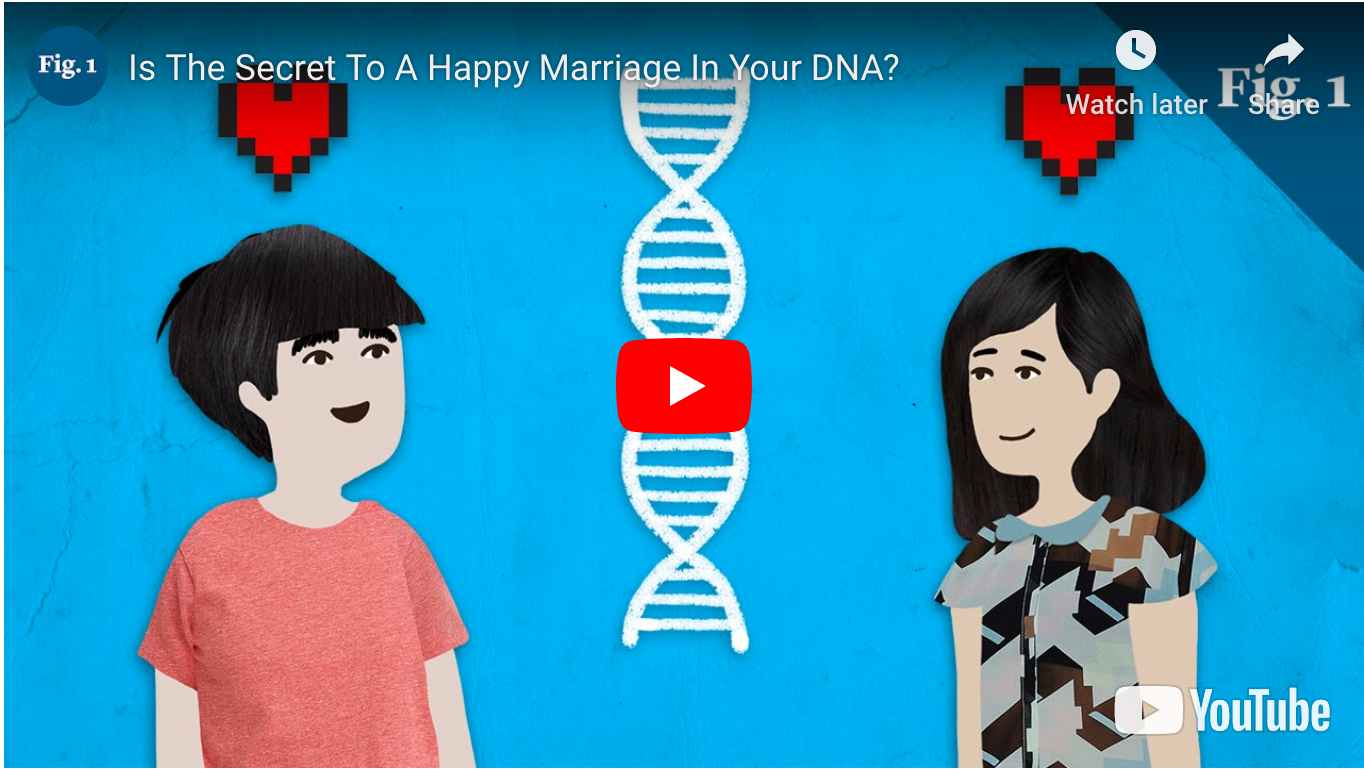From:
Maria Popova
Relationship Happiness and Your DNA: How One Gene Encodes Emotional Sensitivity
“An honorable human relationship — that is, one in which two people have the right to use the word ‘love’ — is a process, delicate, violent, often terrifying to both persons involved, a process of refining the truths they can tell each other,” Adrienne Rich wrote in her stunning meditation on relationships. A happy human relationship, it turns out, is contingent not upon the nature and delivery process of these truths, particularly the difficult truths, but upon the nature of the hearer — upon our emotional orientation and sensitivity, which appears to be encoded in our DNA via a particular gene that regulates serotonin in the brain. So indicates the fascinating research of U.C. Berkeley psychophysiologist and behavioral neuroscientist Robert Levenson.
Known as 5-HTTLPR (serotonin-transporter-linked polymorphic region) and located on chromosome 17 of your DNA, this gene comes in two varieties — one with a short allele and the other with a long allele. Decades of research have revealed a strong positive correlation between the short-allele type and a high precedence of depression, anxiety, and attention disorders, suggesting that people with the short allele respond more negatively to emotional friction within a relationship and seeding the assumption that having this gene is plainly problematic for one’s psychoemotional health. But Levenson’s lab uncovered a much more nuanced and surprisingly optimistic reality — rather than predisposing to more negative emotional responses, the short allele appears to predispose simply to moreemotional responses, serving as a kind of psychoemotional magnifying glass that renders all emotions, the lows as well as the highs, more deeply and intensely felt. Levenson explains:
Complement with Anna Dostoyevskaya on the secret to a happy marriage, Virginia Woolf on what makes love last, and Rainer Maria Rilke on freedom, togetherness, and the key to a good relationship, then revisit these revelatory findings about relationships and happiness from Harvard’s landmark 75-year study of human flourishing.
++++++++++++++++++++++++

No comments:
Post a Comment